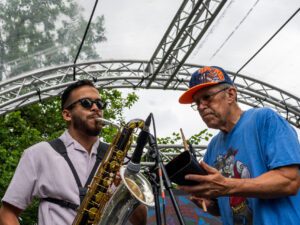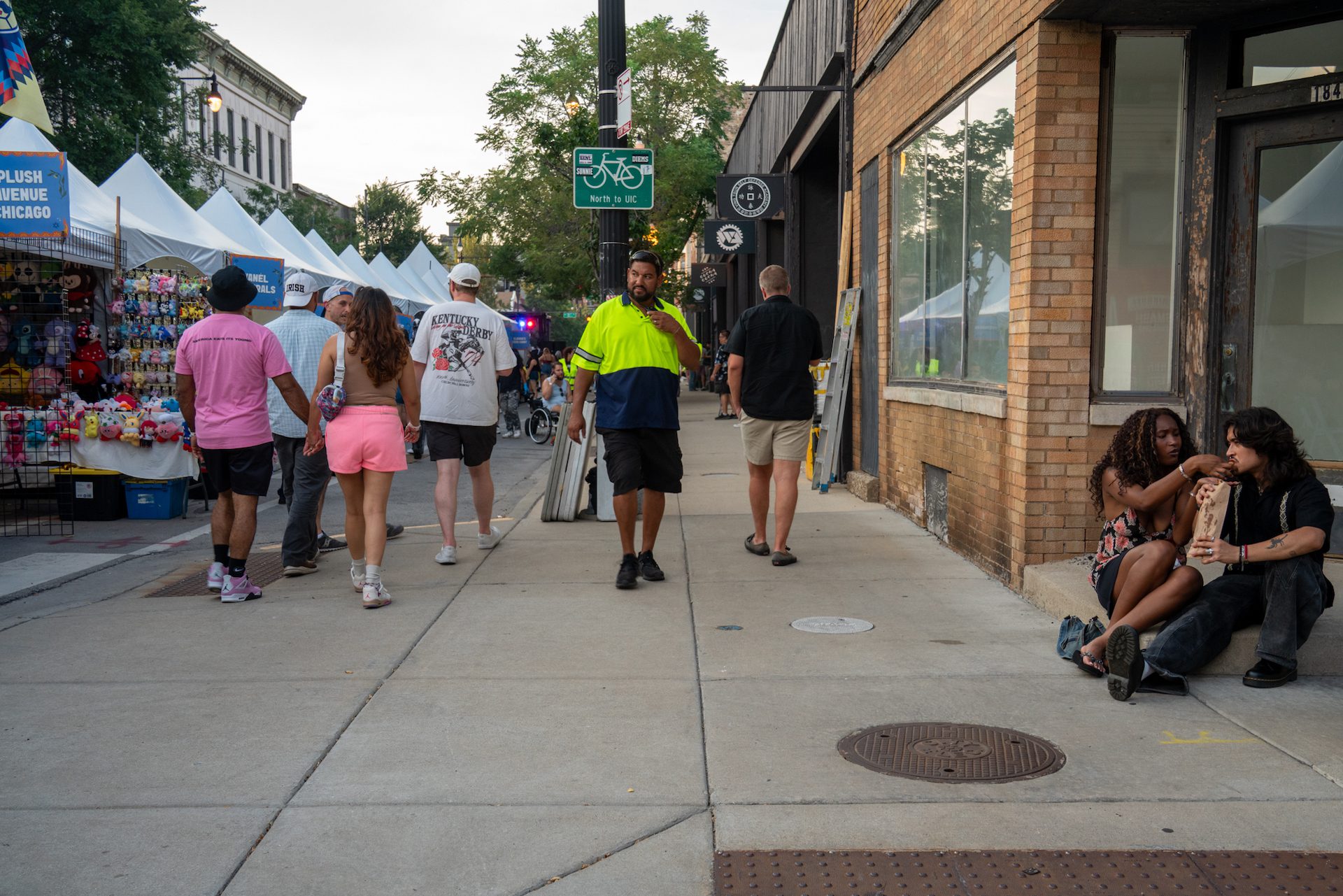 Camilla Forte/Borderless Magazine/Catchlight Local/Report for America
Camilla Forte/Borderless Magazine/Catchlight Local/Report for AmericaSome festival organizers have taken proactive measures to train vendors and staff on how to interact with ICE agents ahead of large gatherings with immigrant attendees.
On a weekend in late July, traffic stopped along a one-mile stretch of Cermak Road.
The Pilsen neighborhood, a historic port of entry for immigrant families, transformed into a colorful hub of festival rides, food vendors, performers and small shops.
As families and friends enjoyed the annual Fiesta del Sol, local groups distributed resources on reproductive health care, K-12 education and property taxes.
News that puts power under the spotlight and communities at the center.
Sign up for our free newsletter and get updates twice a week.
The annual celebration, organized by the Pilsen Neighbors Community Council, attracts thousands each year to celebrate Chicago’s Latino community and the immigrants who shaped the Pilsen neighborhood.
“I grew up coming here almost every year,” said Danna Olmos, an attendee of Fiesta del Sol on opening night.
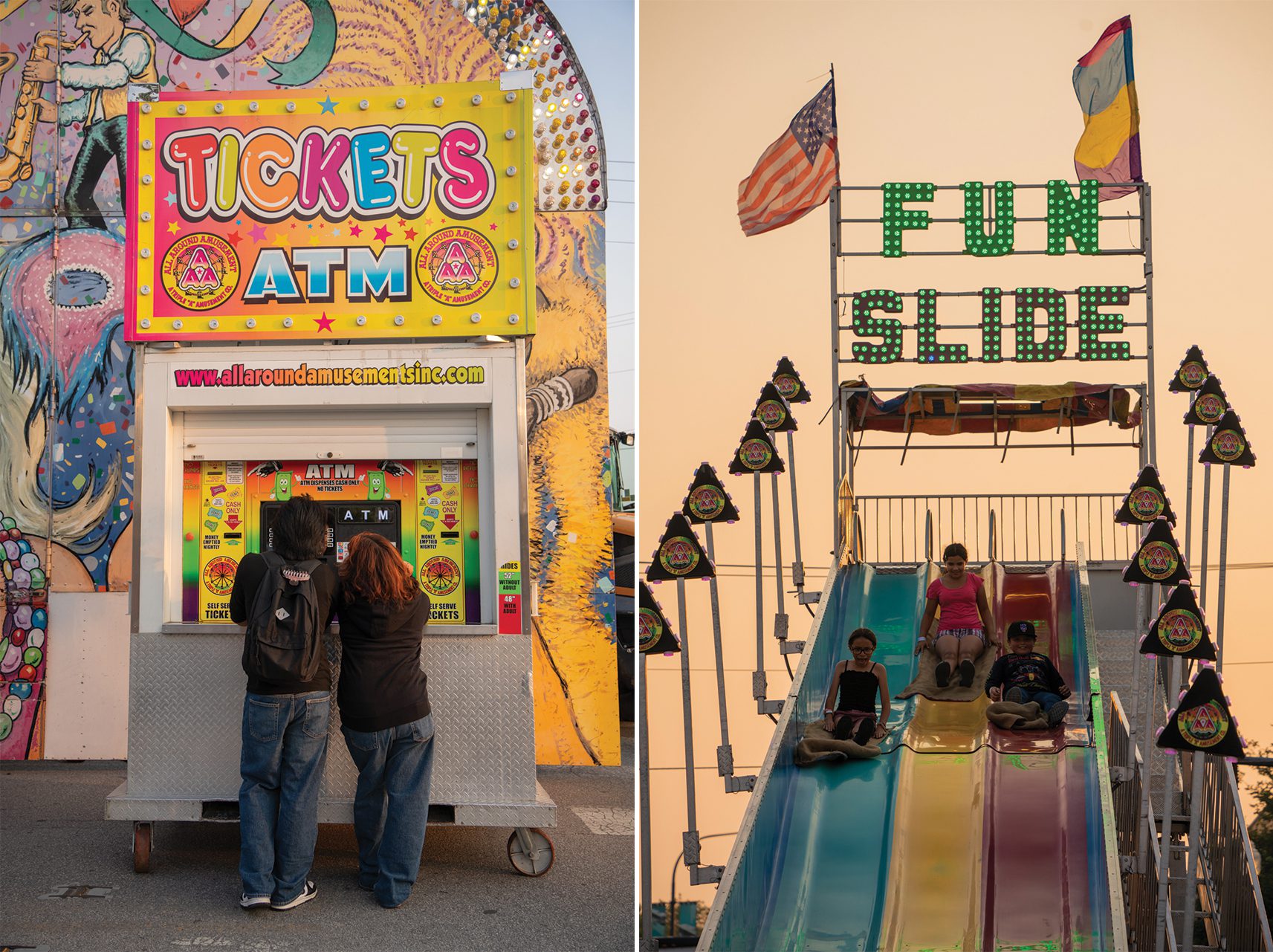
Fiesta del Sol is one of the largest free Latino cultural festivals in the Midwest and a key part of Chicago’s summer social scene. The festival is a staple for the Latino community alongside Michelada Fest, Barrio Arts Fest, The Grand Colombian Festival and Sabor Taco y Tequila Fest.
But as immigrant communities are targeted by President Donald Trump and Immigration and Customs Enforcement (ICE) activity, some festival organizers have been forced to adapt to new pressures and safety concerns.
Some groups have cancelled their events, while others have persisted and hosted cultural and community celebrations with on-the-ground support from private security, volunteers and advocates.
Read More of Our Coverage
In the face of ICE enforcement, city officials and festival organizers say these safety precautions will continue to be pertinent to festival security. As organizers look ahead, they could also face other challenges posed by the Trump administration, including increased ICE forces and the potential deployment of National Guard troops to Chicago.
Lucia Moya-Calderon, 25th Ward chief of staff, said her office is working individually with other permitted festivals — including El Grito Chicago — through October to adapt safety plans and ensure event organizers know what they can legally do to protect their attendees in the event of ICE activity.
Heightened immigrant enforcement
Since Trump took office in January, ICE has detained immigrants at a much higher level than it did during the previous administration. Nearly 70% of the 59,000 immigrants who were in detention as of Aug. 10 have no criminal convictions, according to federal immigration enforcement data gathered by Transactional Records Access Clearinghouse.
Earlier this year, Trump expanded ICE’s ability to conduct immigration enforcement at schools, churches and hospitals by rescinding a Biden-era memo that protected “sensitive” locations from such enforcement.
Over the next four years, ICE is slated to receive a surge in financial resources for immigration enforcement from the “One Big Beautiful Bill Act.” The law, signed in July, allocates over $170 billion to immigration enforcement and detention, allowing ICE to hire at least 10,000 new officers. The agency currently has roughly 20,000 officers.
“We are in a new moment, and ICE is targeting our communities and our neighbors,” Brandon Lee, communications director for the Illinois Coalition for Immigrant and Refugee Rights (ICIRR), said in an emailed statement. “ICE is constantly adopting new tactics, and they are abducting more people than ever.”
The Trump administration’s immigration crackdown has pushed festival organizers to cancel or adapt events to a new reality.
In early May, Michelada Fest organizers announced they would cancel the event, citing concerns over artist visas and “the rapidly changing political climate” in a press release.
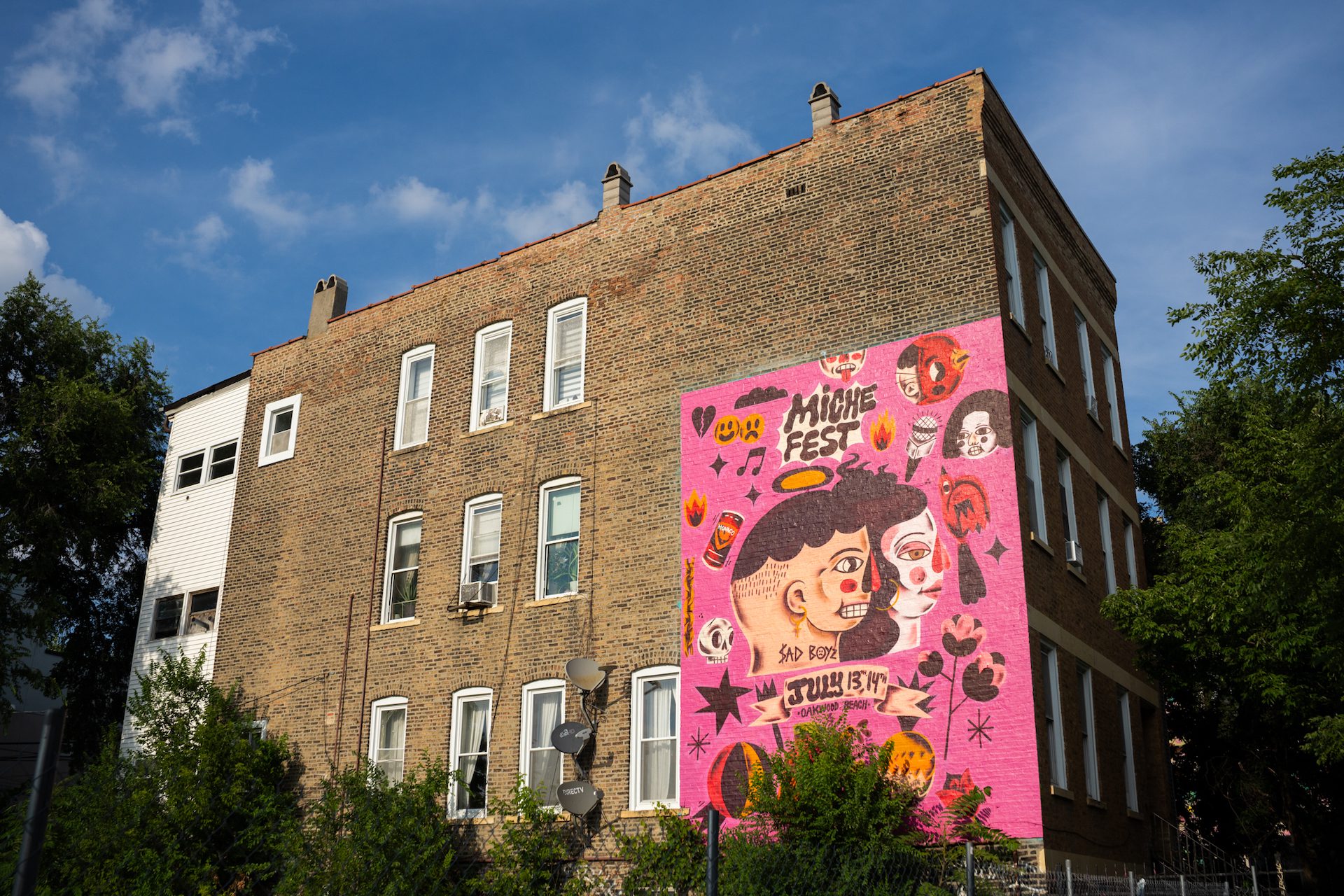
Organizations hosting the annual Cinco de Mayo parade in Little Village also cancelled this year’s festivities, citing fears of ICE raids.
Erika Cruz, manager of a tire and auto shop that has participated in the parade since the ‘90s, said it was usually a chance for her fourth-generation Mexican American kids to experience more of their heritage. At the time, she said cancelling the parade meant “a little piece of our culture goes missing.”
“We look forward to it every year,” Cruz previously told Borderless Magazine. “They miss out on culture as well as festivities.”
In Humboldt Park, Barrio Arts Festival organizers had a different response to immigration enforcement fears.
At first, museum staff were left on edge when Department of Homeland Security (DHS) agents surveyed the National Museum of Puerto Rican Arts and Culture a week before a series of cultural festivals in the Humboldt Park neighborhood in July.
Veronica Ocasio, the museum’s director of education and programming, said staff felt intimidated by the officers and were unsure how to prevent them from entering the building.
When asked about the activity in July, DHS Assistant Secretary Tricia McLaughlin said officers were there for a “quick briefing” unrelated to the museum.
Ultimately, the Barrio Arts Festival wasn’t cancelled. Instead, the incident led organizers to increase security and implement mandatory check-ins during the Barrio Arts Festival.
Hundreds of community members ultimately attended the Barrio Arts festival, with some viewing their participation as a protest against immigration enforcement.
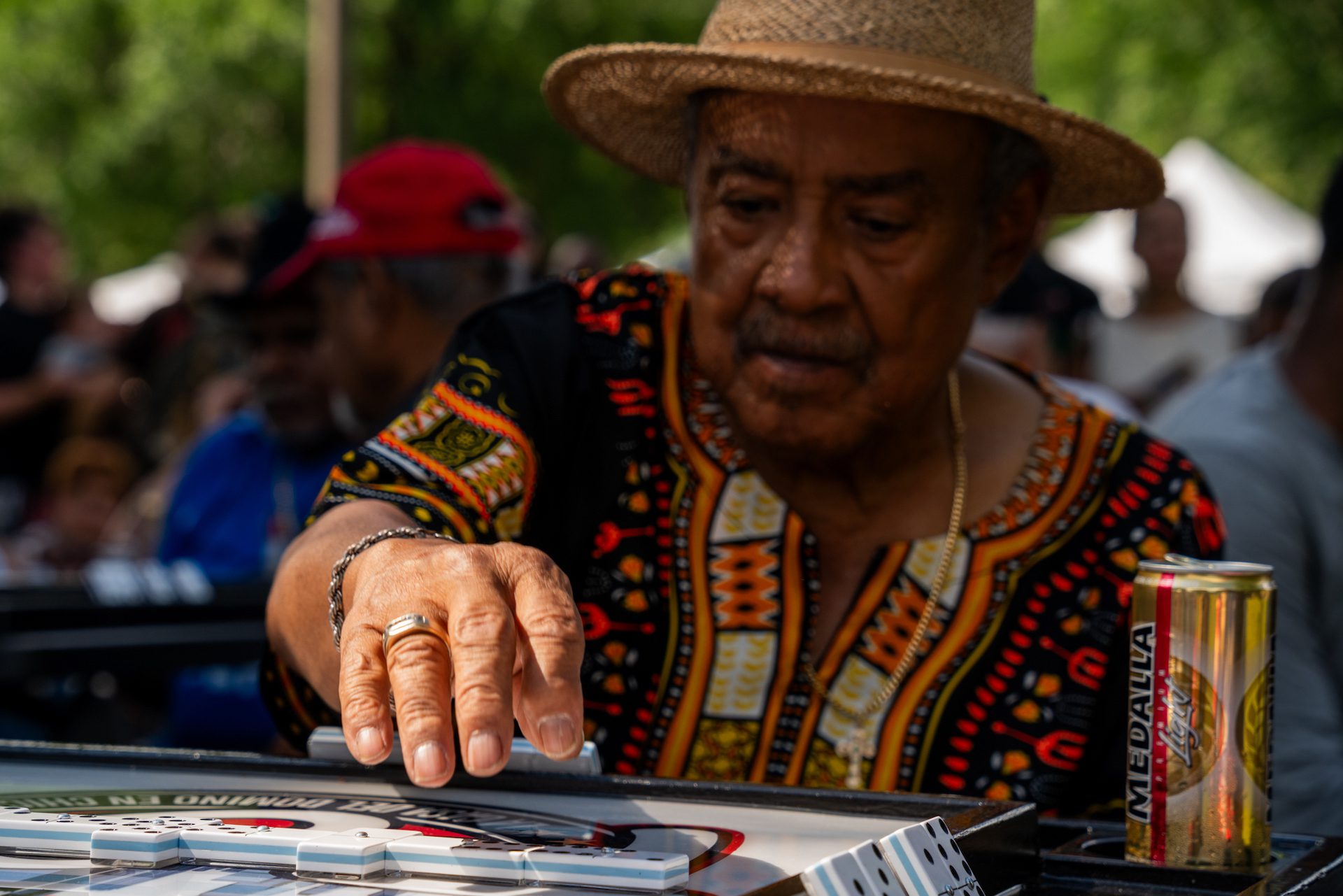
“I don’t like the mistreatment of people,” said Jess, a Barrio Festival attendee who declined to give her last name. “As someone who was born in the United States but a Mexican descendant nonetheless, I will continue to support my people and make my presence known.”
ICE raids have sparked concern among Chicago’s immigrant and Puerto Rican communities, reflecting a nationwide pattern of immigration enforcement impacting noncitizens and citizens alike.
When asked by Borderless Magazine staff about the emotional impacts of ICE arrests in Chicago and Illinois and whether there are restrictions in ICE’s guidelines on conducting neighborhood raids or arrests at large public gatherings, a DHS spokesperson said, “those who are not here illegally and are not breaking other laws have nothing to fear.”
“What makes someone a target for immigration enforcement is if they are illegally in the U.S. — NOT their skin color, race, or ethnicity,” the DHS spokesperson said in an emailed statement.
However, some citizens allege they are being racially profiled by ICE agents — including Jorge Luis Hernández Viramontes, who is a U.S. citizen and part of a lawsuit in California charging ICE agents with unlawfully using racial profiling to make arrests.
Hernández Viramontes was held for 20 minutes by federal officers after they raided the car wash where he worked, according to reporting by EL PAÍS.
In response to the lawsuit, DHS argued ICE agents are entitled to consider factors such as ethnicity, race and whether someone has an accent to aid their enforcement actions.
“Needless to say, no one thinks that speaking Spanish or working in construction always creates reasonable suspicion,” DHS argued in a court filing. “But in many situations, such factors — alone or in combination — can heighten the likelihood that someone is unlawfully present in the United States … [and ICE] agents are entitled to rely on these factors when intensifying immigration enforcement.”
Planning to keep the community safe
With the growth of immigration enforcement, local officials say they have tried to be proactive to shield communities from ICE activity.
Following the incident at the Museum of Puerto Rican Arts and Culture, representatives from the 25th Ward began developing safety plans based on recommendations from local rapid response teams and the Mayor’s Office of Immigrant, Migrant, and Refugee Rights.
In a statement to Borderless Magazine, the office of Ald. Jessie Fuentes (26th) said, “in cases where event organizers request deportation defense support, we connect them directly with ICIRR.”
Fiesta del Sol organizers in Pilsen also prepared for potential ICE activity. Ahead of the festival, they developed safety protocols and internally designated certain areas as safety zones — private buildings where attendees could convene in the event of ICE activity.
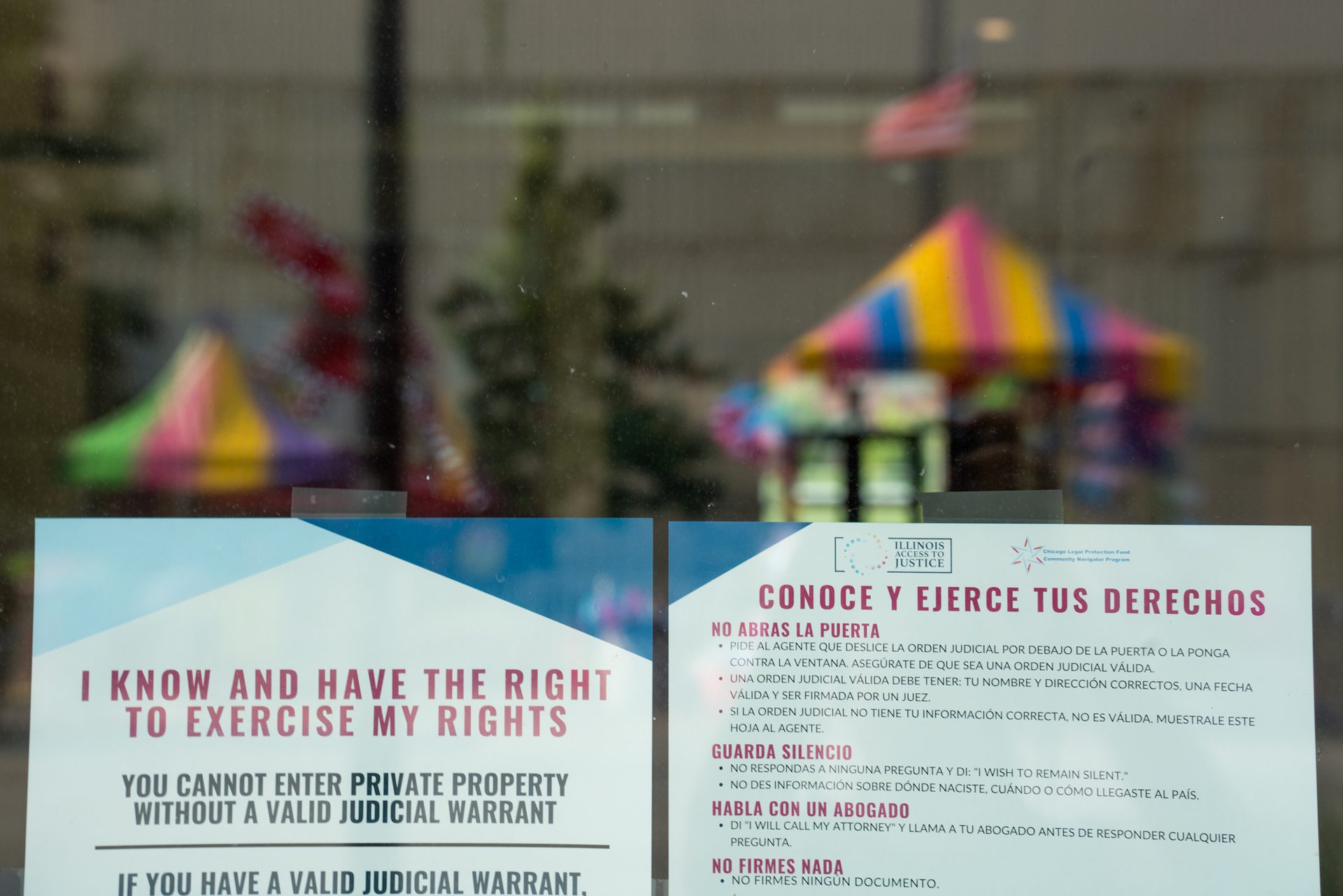
Fiesta del Sol Co-Chair Juana Medina said the goal throughout the planning process was to proactively protect community members attending the festival, whose theme this year was “Protecting Our Families, Defending Our Rights.”
Organizers worked with immigrant advocacy organizations, including ICIRR, and legal experts to train staff and volunteers on individuals’ rights when interacting with ICE.
Medina said many volunteers who participated in the Know Your Rights trainings ahead of the event were empowered by the opportunity to learn how to defend their neighbors.
“They didn’t just go to the training because it was a requirement,” she said. “They engaged and they treated it with respect.”
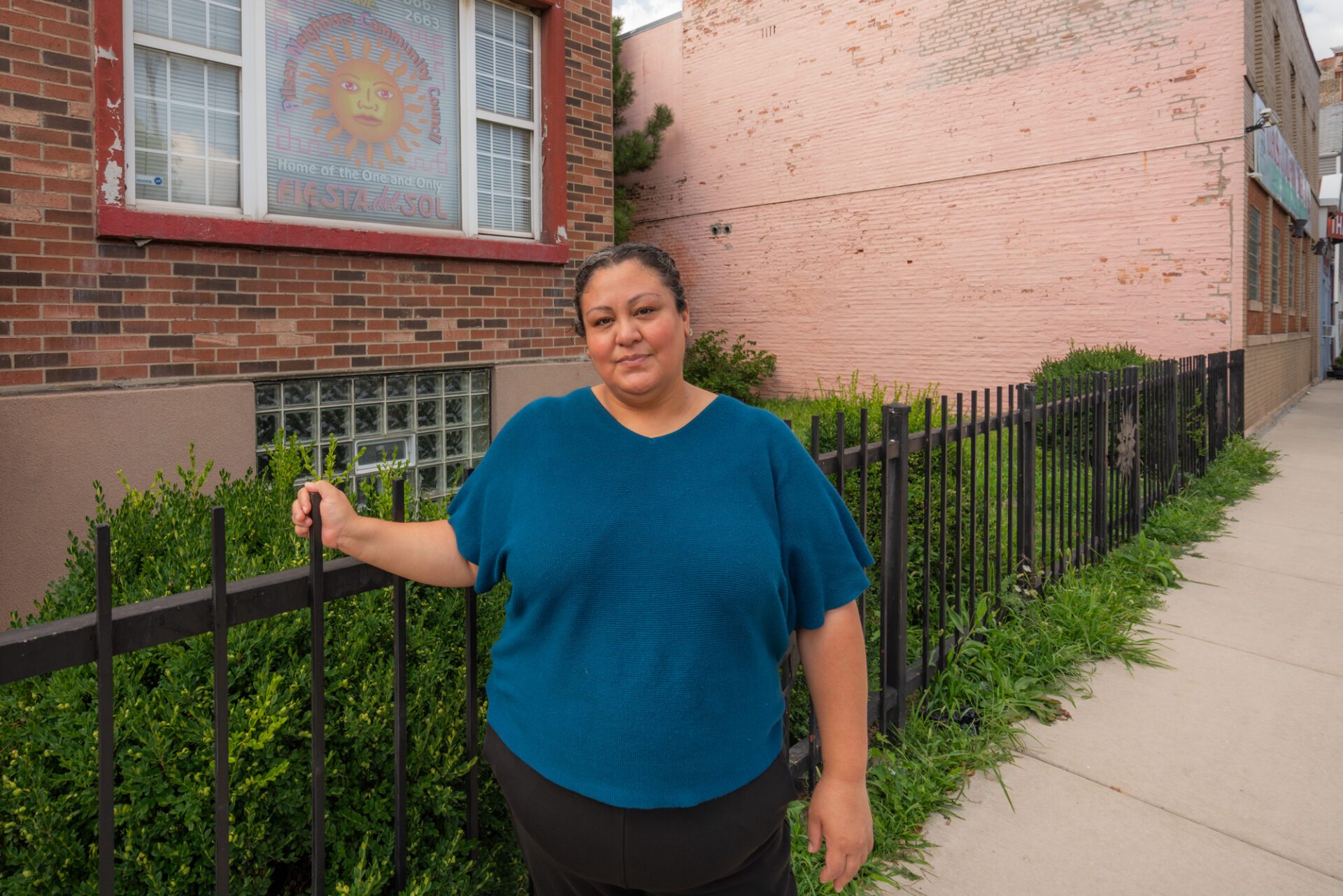
She added that some volunteers were teens and college students who returned year after year to participate.
“Fiesta is giving them community,” Medina said. “It’s giving them a sense of identity and a sense of pride.”
According to Medina, no immigration arrests were made over the weekend-long festival.
The essence of Fiesta del Sol
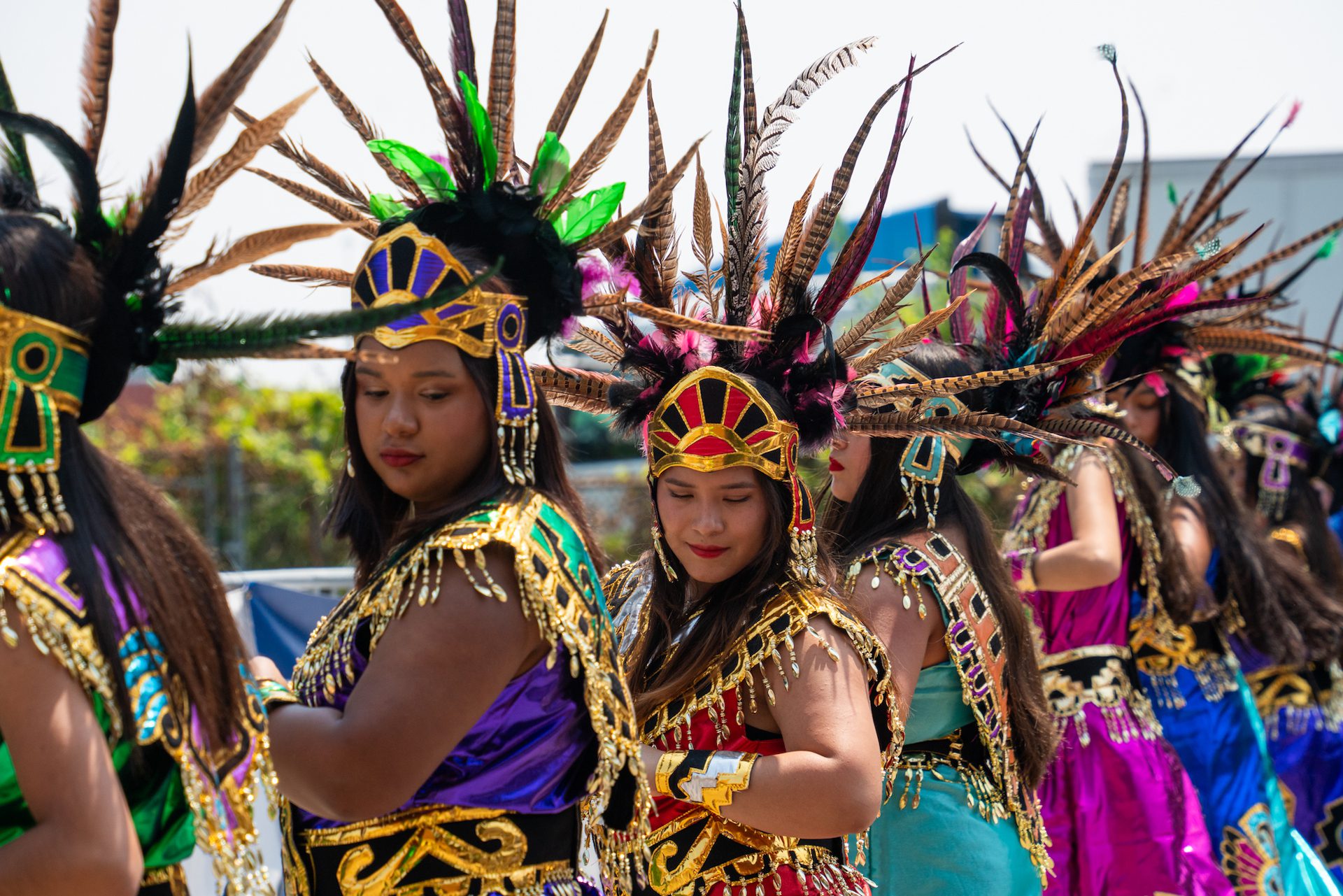
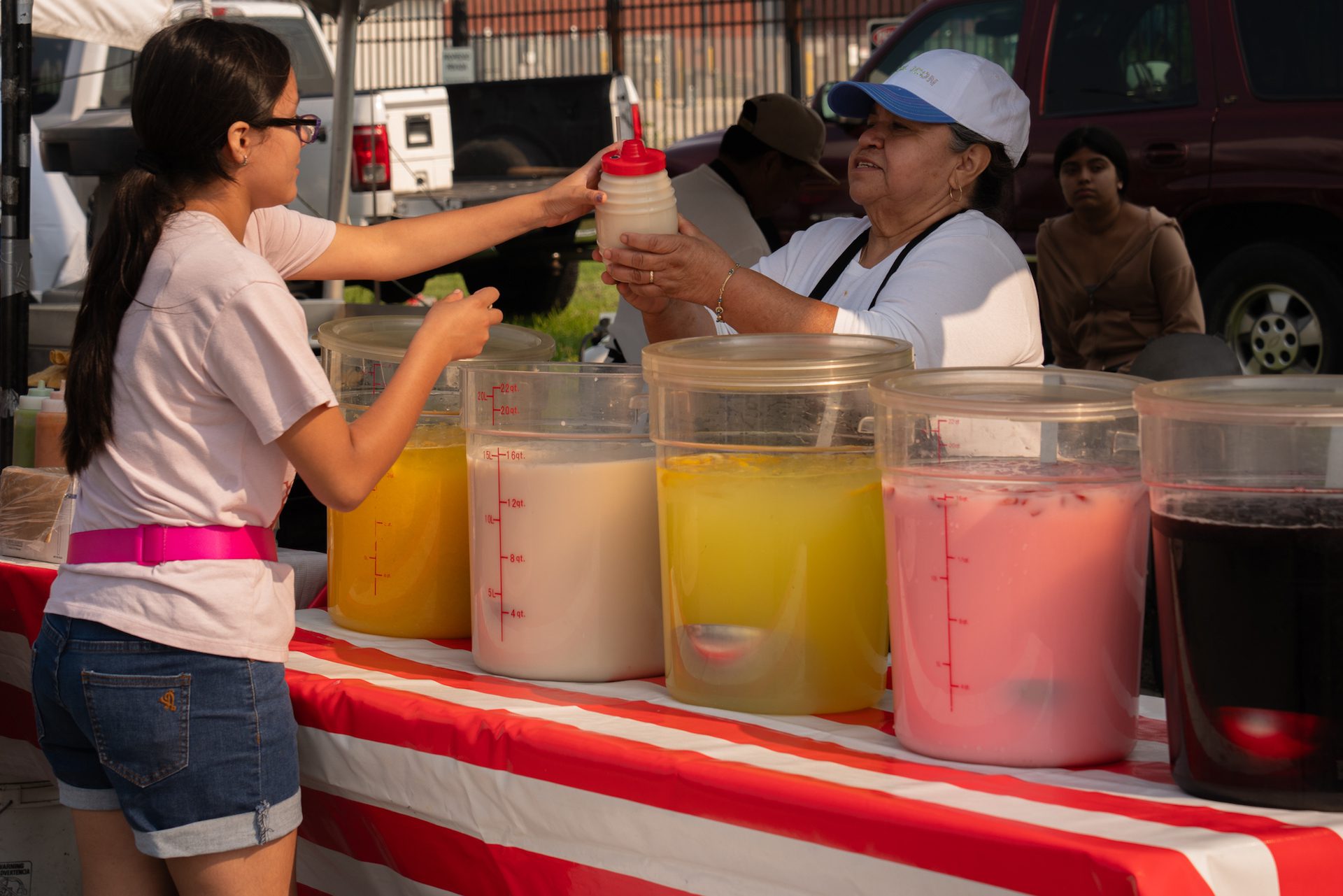
Behind the scenes, organizations and public officials have focused on ensuring safety while not losing sight of these festivals’ mission: celebrating culture and community.
Attendees like Sal Martin felt the results of organizers’ work. Martin, who grew up in Pilsen and has been coming to the 53-year-old festival with his family since childhood, agreed that the essence of Fiesta del Sol is community and heritage. The food at the festival, he said, reminded him of the cooking he grew up with at home.
This year, Martin said he brought his daughter to experience what he grew up doing in the summertime.
“I probably went on all these rides as a kid,” Martin said. “For me, [this festival] is close to my heart … because I spent countless summer days here.”
Katrina Pham is Borderless Magazine’s audience engagement reporter. Email Katrina at [email protected].
Camilla Forte is a CatchLight fellow and Report for America Corps Member covering immigrant communities for Borderless Magazine. She can be reached at [email protected].
